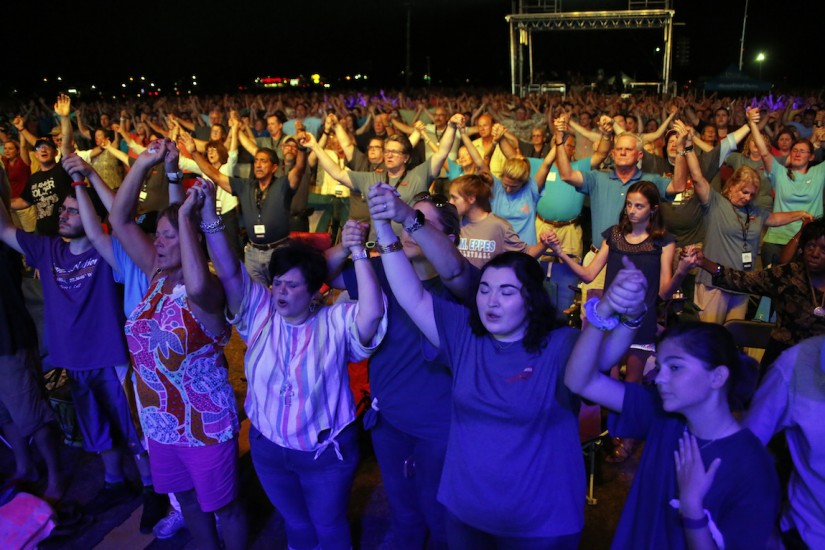But this is where the strangest, and perhaps the most consequential, chapter in the history of American evangelicalism began. For in the 1980 election the newly confident evangelical movement, in its self-understanding as the Moral Majority, supported not its co-religionist Jimmy Carter but the divorced former Hollywood actor Ronald Reagan. And that inaugurated the affiliation of white American evangelicals with the Republican Party that has lasted to this day. As Kidd explains:
Forming the Moral Majority freed [Falwell] from tax regulations against direct political advocacy by churches. Unlike [Billy] Graham, Falwell did not begin by seeking access to the top levels of power. Instead, he sought to mobilize fundamentalists and evangelicals to change the occupants of political offices. He told Christians that it was sinful not to vote. Asking pastors to hold voter registration drives, Falwell told them that they needed to get people “saved, baptized, and registered” to vote. The agenda of the Republican evangelical insiders was born.
The precise contours of what happened to evangelicals during the Carter administration are still hotly debated by historians. Certainly abortion rights—which Carter supported and Reagan did not—played a major role, even though that was a recent priority for evangelicals. More generally, the social conservatism of many evangelicals, especially in the South, made them feel less and less at home with the comparatively progressive sexual and racial politics of the Democratic Party. And the fact that Reagan could speak openly of God—in the ’60s, well after his divorce and remarriage, he had had some kind of religious awakening, and became a regular attender of Bel Air Presbyterian Church in Los Angeles—sweetened the pill.
But it seems to me that of all the traits that attracted evangelicals to Reagan, perhaps the most important was his sunny and fervent patriotism. Already white American evangelicals had a tendency to associate Christianity closely with the American experiment, and to think of their country as a “Christian nation” or, at the very least, actuated by “Judeo-Christian values.” But as the decades passed and American church leaders in almost all denominations became less interested in traditional Christian doctrines and more interested in what some scholars have come to call moralistic therapeutic deism, a larger and larger proportion of white evangelicals became what Pew Research calls “God-and-Country Believers.” These folks, almost all of whom are white, may not attend church often or at all, and they may not be interested in, or even aware of, the beliefs that have typically characterized evangelical Christians, but they know this much: They believe in God, and they believe in America, and they love Donald Trump because he speaks blunt Truth to culturally elite Power, and when asked by pollsters whether they are evangelicals, they say yes. By now, God-and-Country Believers are so accustomed to voting Republican—and to being disdained or mocked by Democrats—that few of them can remember doing anything else. And God-and-Country Believers are what most Americans, whether religious or not, now think that evangelicals are.
